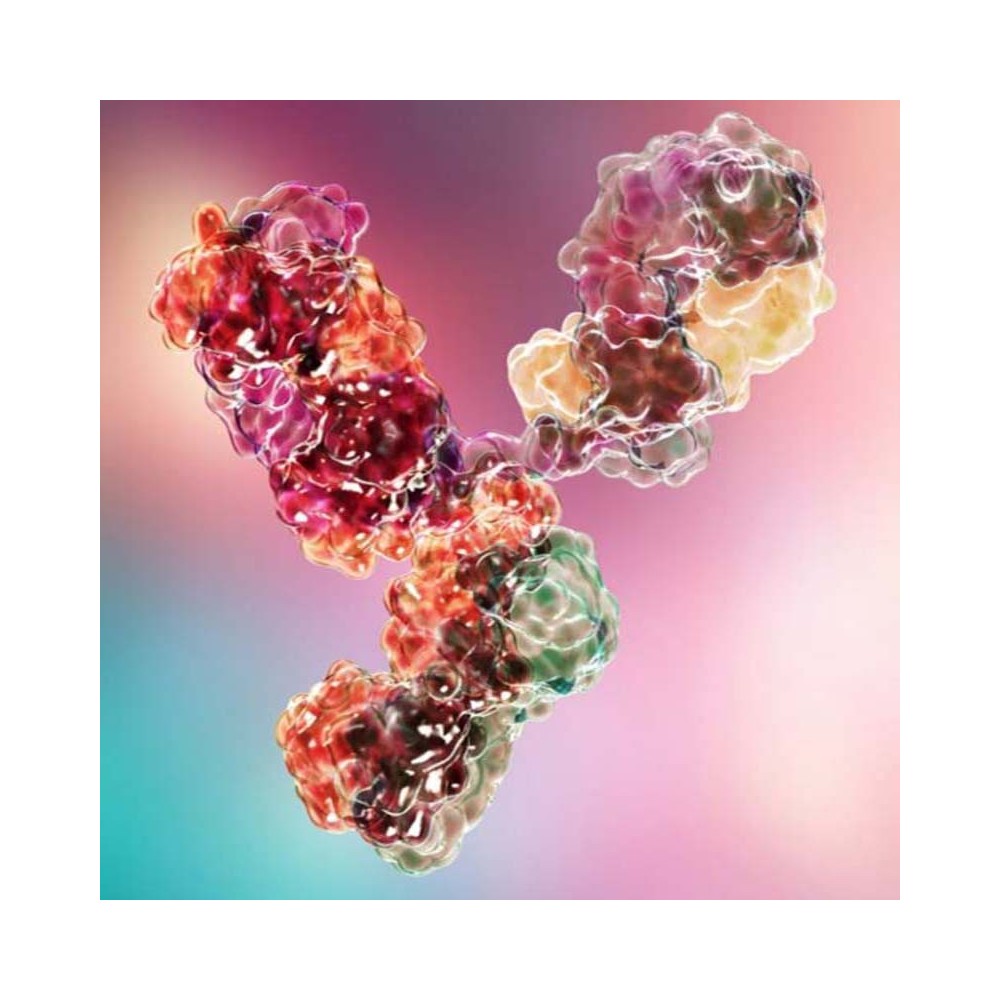


Product Information
|
Product Name |
Cat. No |
Spec. |
|
Calcein AM Cell Viability Assay Kit(CCK-F) |
AO-03-G1609-100T |
100T |
|
AO-03-G1609-500T |
500T |
Product Description/Introduction
Calcein AM is based on Calcein (Calcein Acetoxymethyl Ester), and introduces an acetylmethoxymethyl ester (AM) group, which not only masks the molecular portion of Calcein that chelates calcium but also enhances its hydrophobicity, thus allowing Calcein AM to easily penetrate into the membrane of living cells, and to be sheared by endogenous cellular esterases to Calcein. Calcein, which has lost its AM group, cannot easily pass through the cell membrane and is thus retained inside the cell; in addition, the molecular part of the chelated calcium is partially exposed, allowing the Calcein probe to bind to calcium ions in the living cell and emit a strong green fluorescence. However, dead cells lack esterase and cannot be hydrolyzed to Calcein AM, so it cannot label dead cells. Calcein AM has low cytotoxicity and has little effect on cellular functions, such as cell proliferation or lymphocyte chemotaxis, making it an excellent fluorescent probe for staining live cells.
This product, Calcein AM Cell Activity Assay Kit, also known as Cell Fluorescence Counting Kit (CCK-F), is an assay kit to evaluate the activity, toxicity, and proliferation of cells by labeling live cells with Calcein AM fluorescent probe. This kit has been optimized and tuned, not only has high detection sensitivity and wide linear range, but also requires only a short incubation time to complete the detection of cells. It is easy to operate and does not require radioisotope labeling or steps such as crystallization and dissolution, which can reduce the errors caused by experimental operations and improve the accuracy and reproducibility.
Storage and Shipping Conditions
Ship with wet ice; store at -20°C in the dark.; Try to avoid repeated freezing and thawing, valid for 12 months.
Product Contents
|
Component Number |
Component |
AO-03-G1609-100T |
AO-03-G1609-500T |
|
G1609-1 |
Calcein AM Solution |
100 μL |
500 μL |
|
G1609-2 |
CCK-F Assay Buffer |
10 mL |
50 mL |
|
Manual |
One copy |
||
Assay Protocol / Procedures
1. Preparation of Calcein AM working solution
For a 96-well cell culture plate, use 100μl of calcein AM working solution per well. Prepare an appropriate amount of calcein AM working solution as indicated in the following table and mix thoroughly.
|
Component |
10 assays |
50 assays |
100 assays |
|
Calcein AM Solution |
10 μL |
50 μL |
100 μL |
|
CCK-F Assay Buffer |
1 mL |
5 mL |
10 mL |
2. Adherent cell detection:
The following steps correspon to the 96-well plate detection scheme, and other muti-well plates systems need to be adjusted according to the situation.
a. Cell seeding: cells are evenly seeded in a 96-well plate at a certain density, and treated with drugs or other pre-treatments (the seeding density is determined by factors such as cell size, growth rate, etc.);
b. (Optional) Cell washing: Remove the culture medium and wash cells once to twice with PBS (recommended G4202) to remove serum, phenol red and/or drugs that interfere with the assay.
c. Probe labeling: After removal of cell culture medium or PBS buffer, add 100 μL calcein AM working solution and incubate at 37°C for 30 min in the dark.
d. (Optional) Cell incubation: Continue to incubate for 15-30 min with the new cell culture medium to ensure that the intracellular Calcein AM is fully hydrolyzed.
e. Fluorescence detection: After incubation, measure fluorescence with a fluorescence microplate reader (the maximum excitation wavelength of Calcein AM probe is 501 nm, and the maximum emission wavelength is 521 nm.) and calculate the cell viability. The fluorescence intensity is proportional to the number of viable cells. Fluorescence microscopy can also be used to observe the staining results.
3. Suspension cell assay:
a. Cell seeding: cells are evenly seeded in a 24-well plate at a certain density, and treated with drugs or other pre-treatments (the seeding density is determined by factors such as cell size, growth speed, etc.);
b. (Optional) Cell washing: Centrifuge cell culture at 1,000×g for 3-5 minutes, remove the supernatant and wash cells twice with PBS to remove serum, phenol red and/or drugs that interfere with the assay.
c. Probe labeling: After centrifuging at 1000 g for 3-5 min, remove the cell culture medium or PBS buffer, add an appropriate amount of Calcein AM working solution, and incubate at 37°C for 30 min in the dark;
d. (Optional) Cell incubation: Continue to incubate for 15-30 min with the new cell culture medium to ensure that the intracellular Calcein AM is fully hydrolyzed.
e. Fluorescence detection: After incubation, measure fluorescence with a fluorescence microplate reader or flow cytometry (the maximum excitation wavelength of Calcein AM probe is 501 nm, and the maximum emission wavelength is 521 nm.). Cell viability is proportional to fluorescence intensity. Depending on the purpose of the experiment, nuclei can also be further counterstained or detected with other instruments such as fluorescence microscopy.
Note
1. Briefly centrifuge Calcein AM solution before use to reduce reagent loss.
2. Calcein AM decomposes easily in humid environments. Aliquot upon receipt, seal tightly, and store at -20℃.
3. Calcein AM is unstable in aqueous solutions. The Calcein AM working solution is ready-to-use and valid for use within 24 hours.
4. The optimal incubation time is different for different cell types, which can be adjusted and optimized based on the staining results.
5. Use a black multi-well plate to grow cells when fluorescence microplate reader is used for the measurement.
6. Fluorescent dyes are subject to quenching, handle and store away from light.
7. For your safty and health, please wear safety glasses, gloves, or protective clothing.
For Research Use Only!
Use collapsible tabs for more detailed information that will help customers make a purchasing decision.
Ex: Shipping and return policies, size guides, and other common questions.